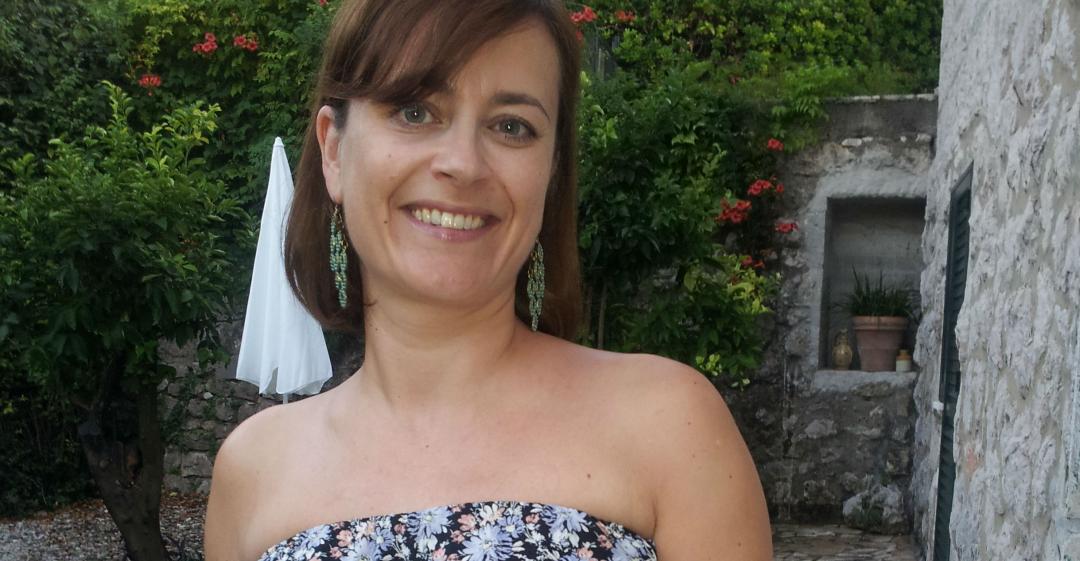“When we came to setting targets for where I wanted my career to go, I had nothing to say, except 'somewhere else'.”

What work were you doing previously?
I was an Advanced Skills Teacher in a Secondary School.
What are you doing now?
I work for Teach First at the Institute of Education, as a Professional Tutor training teachers.
Why did you change?
Although I loved teaching, believed strongly in the importance of education and really liked my workmates, my workload was taking over my life.
A job which I had once loved had become a grind, which was stopping me from pursuing interests in other areas of my life, including my personal life. I realised that whereas I used to talk about my work in a really positive way, I was now constantly complaining to friends and family about it.
I was even boring myself!
When was the moment you decided to make the change?
I walked into the school on the first day of term of my fifteenth year in teaching, and felt a total sense of doom.
I knew that to walk through that door in a year's time was not an option. I had an appraisal meeting shortly afterwards with my line manager. When we came to setting targets for where I wanted my career to go, I had nothing to say except, 'somewhere else'.
Are you happy with the change?
Very much so.
I realised that I was totally institutionalised and find it incredibly refreshing to be working in a different way even though I still work in education. I've moved from having no control over my day, to organising everything about what I do and when I do it myself.
A change is most definitely as good as a rest.
What do you miss and what don't you miss?
I miss the people I worked with, and am sorry not to be working directly with teenagers any more.
I don't miss feeling resentful about the amount of time I spend at work, and the restrictions having every part of my day dictated to me by a timetable.
How did you go about making the shift?
Initially I started looking for a totally different area of work as I was so desperate to make a change.
I thought very seriously about going into catering. I asked around, speaking to people who ran similar business and looking a possible outlets where I could sell food. However, it very quickly became obvious that this was not financially viable.
I then attended two career-change courses, one of which was the Careershifters workshop. The coaching activities that we did helped me to realise that in terms of values I liked my work, and so I started to look for more manageable ways of staying in education. This led to me signing up for job alerts on a number of websites, on one of which I found my current job.
How did you handle your finances to make your change possible?
When I started to look at changing career I realised that I was likely to have to take a pay cut.
As a single person, this was tough as I had no fall-back income. I went down to four days a week in my teaching job, partly to reduce my hours, but partly to see if I could survive on less money. This gave me a more realistic idea about what I could live on.
Most importantly I realised that having more money was a lot less important to me than having more time.
What was the most difficult thing about changing?
The fear of doing it!
No matter how much you know it's the right thing to do, the unknown is scary.
What help did you get? 
I took part in career-change courses, including one by Careershifters.
I also had a number of sessions with a life coach. I asked around friends, and friends of friends , speaking to a lot of people who were involved in areas of work that I thought I might be interested in.
In particular, I made a point of talking to anyone who had changed career. This really helped to encourage me as I could see that it was possible to do.
What have you learnt in the process?
That it's never too late to change career, and that change is exciting as well as scary.
You need to look at your core values to help you find the right career for you. If your job doesn't meet at least some of these, then you will never be happy.
What do you wish you'd done differently?
I wish I'd done it ten years ago!
What would you advise others to do in the same situation?
Take the first step, even if it's just telling other people you want to do it, as this helps to force your hand.
Once people start asking you how you're doing, you'll feel you need to have something to tell them.
Don't feel that you have to change everything immediately. Even small, incremental changes can be satisfying, as they take you one step closer to where you want to be.
Also don't let yourself off the hook! Keep moving forwards by taking a small step every week.
What resources would you recommend to others?
Career change courses are really helpful because you realise how many other people are in the same boat as you.
I would also thoroughly recommend any type of coaching.
What lessons could you take from Siobhan's story to use in your own career change? Let us know in the comments below.



